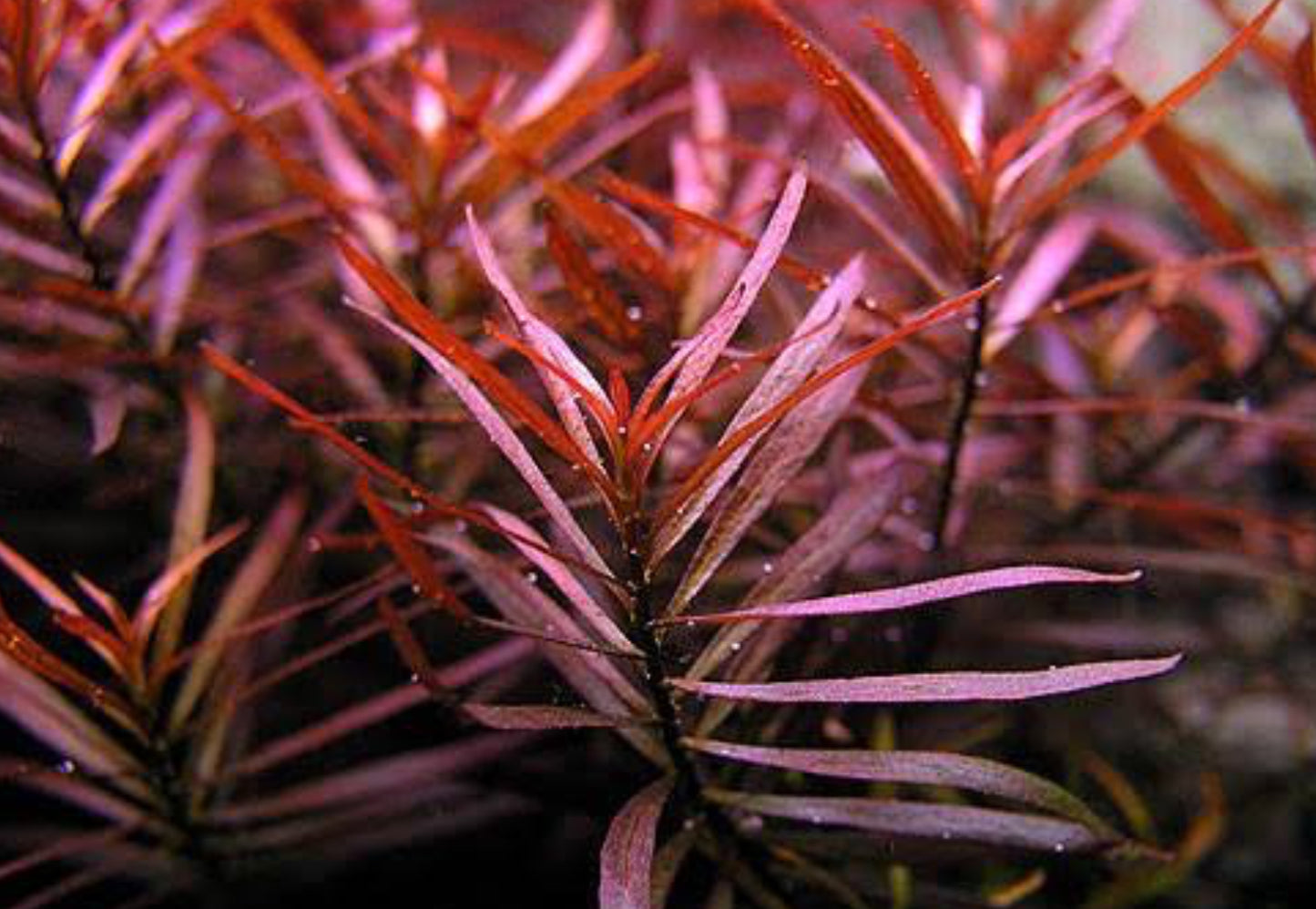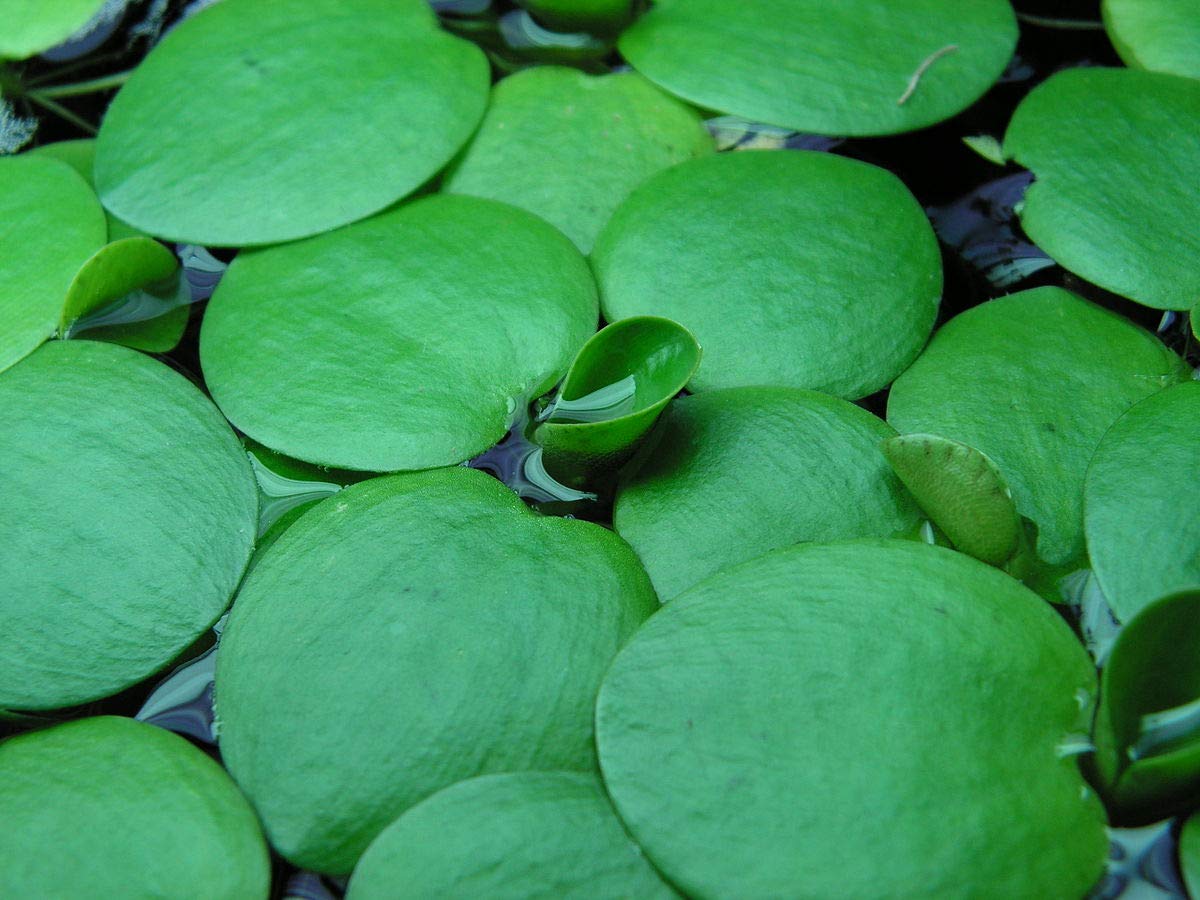BlackWater Aquatics
Ludwigia arcuata ‘Dark Red’
Ludwigia arcuata ‘Dark Red’
Couldn't load pickup availability
Ludwigia arcuata is one of the most delicate-looking Ludwigia species. It is widely spread in aquaristics and originates in the southeast of the USA, where it grows creeping or submersed along rivers and on the edges of ponds. It is also found in boggy areas.
The submersed form of L. arcuata looks a lot like Didiplis diandra, and it is also really easily confounded with Ludwigia brevipes, which is in addition often sold in trade under the false name "L. arcuata". Both Ludwigia species can be discerned from each other as emersed flowering plants:
- Ludwigia arcuata:
emersed stem scantily hairy (use a magnifying glass!), pedicel up to 3.5 cm long, petals bright yellow, obovate, up to 11 mm long and 7 mm wide.
- Ludwigia brevipes:
emersed stem without hairs, pedicel up to 1.8 cm long, petals pale yellow, elliptic, 4 to 6 mm long and 2 to 3 mm wide.
L. arcuata is a reddish, strongly ramifying stem plant. Sufficient light is a basic requirement for successful cultivation, as is an ample nutrient supply. Micronutrients help to preserve the reddish colouration of the shoot tips and the leaf undersides. Macronutrients are usually plentiful, as they are added with fish food. Nitrate, phosphate and potassium only have to be supplemented if you fertilise your tank with CO2, which makes the true Ludwigia arcuata an excellent choice for aquaria not equipped with any CO2 injection system.
This plant can also be cultivated emersed in wet or moist loam under lots of lights. The beautiful yellow flowers of L. arcuata have four relatively large petals (see differentiation with L. brevipes above).
Propagating L. arcuata is as easy as propagating any stem plant, and as this species tends to have lots of lateral shoots they just have to be cut off and re-planted.
You can also take cuttings of the top shoot.
Due to its delicate structure, L. arcuata ought to be planted in groups of at least 6 stems. These groups with their red and golden leaves are especially well-suited for the middleground, where they contrast effectively with a dark background or other small-leaved plants like Hemianthus micranthemoides or Rotala rotundifolia 'Green'.


Aquatic Plants
Aquatic Plants are not only the best way to improve the health and overall quality of life for the inhabitants of your aquarium, but also aestheticly pleasing.
-
.
-
.
